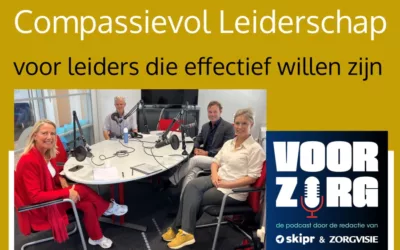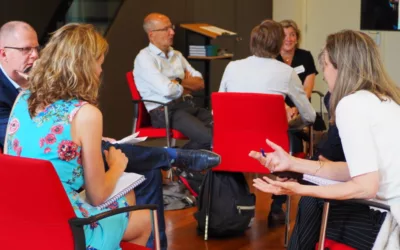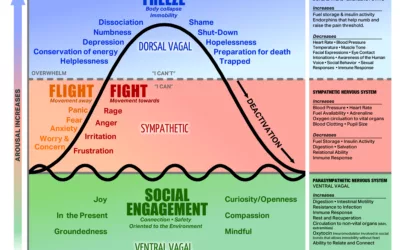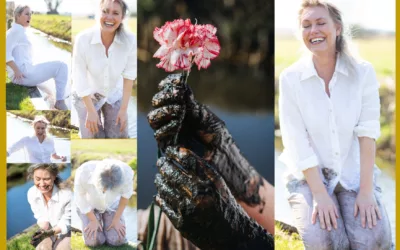Blogs & Science
Compassievol Leiderschap vraagt moed en doortastendheid – POdcast
Het lijdt geen twijfel dat compassievol leiderschap in de zorg de meest effectieve vorm van leiderschap is. Uit wetenschappelijke onderzoek blijkt dat compassievolle leiders een compassievolle cultuur creëren. Dit...
Ego can kill
When a human is being born, an ego is born too. Nothing wrong with that. In fact we all need an ego to maneuver through life. It gives us a perception of the outer world as well as the ‘self’. A well-developed ego...
You! Now!
You, Now! Poet: Joost van Vondel This poem is the shortest poem and palindrome in Dutch. It was written by Joost van den Vondel in 1620. In two words it captures the essence of care: attention for the other. At my...
Kunst, Mindfulness en Zorg ontmoeten elkaar in Innovatief Scholingsaanbod
Haarlem, oktober 2022 - Museum van de Geest en BFC Compassionate Care & Mindful Medicine slaan de handen ineen en ontwikkelen samen een innovatief programma op het gebied van mindfulness en kunst voor...
Three key needs we all have in the workplace
Compassionate leadership supports the three basic needs we have in the workplace: 1. Autonomy: feeling choiceful, self initiated and being whole heartedly behind the things that you are doing. 2....
Polyvagaal Theorie en Neuroceptie
POLYVAGAAL THEORIE EN NEUROCEPTIE Geschreven door: Saskia Ebus, therapeut praktijk Rosas, neuroloog (n.p.) 2022 en meditatieleraar van de Internationale Compassie Community Onlangs gebruikte ik de ‘polyvagaal...
Over Geluk Gesproken, de podcast
Wat is geluk voor jou? Zeker in deze week van de mentale gezondheid een vraag die wij onszelf en de mensen om ons heen moeten stellen. Want als wij weten wat geluk voor ons betekent, kunnen wij keuzes maken die...
No Mud No Lotus
Langzaam voel ik mezelf dieper en dieper in de blubber zakken. En alhoewel ook aan mij de Wim Hof methode niet voorbij is gegaan, zorgt het idee dat ik met een watertemperatuur van hooguit 5 graden tot aan mijn nek...
The evidence of Mindfulness-based Programs
The number of academic studies examining the effect of mindfulness on sustainability has increased dramatically over the last 5-10 years and these build upon an already extensive evidence base.
Mindfulness has been found to positively affect a wide range of outcomes across health, wellbeing, performance and relationships. The highest quality of evidence comes so far from clinical studies addressing common mental health concerns such as depression, anxiety, stress, over-eating and addiction along with managing long-term physical conditions such as chronic pain and cancer.
Read more about positive effects of mindfulness-based interventions found in recent meta-analyses.









